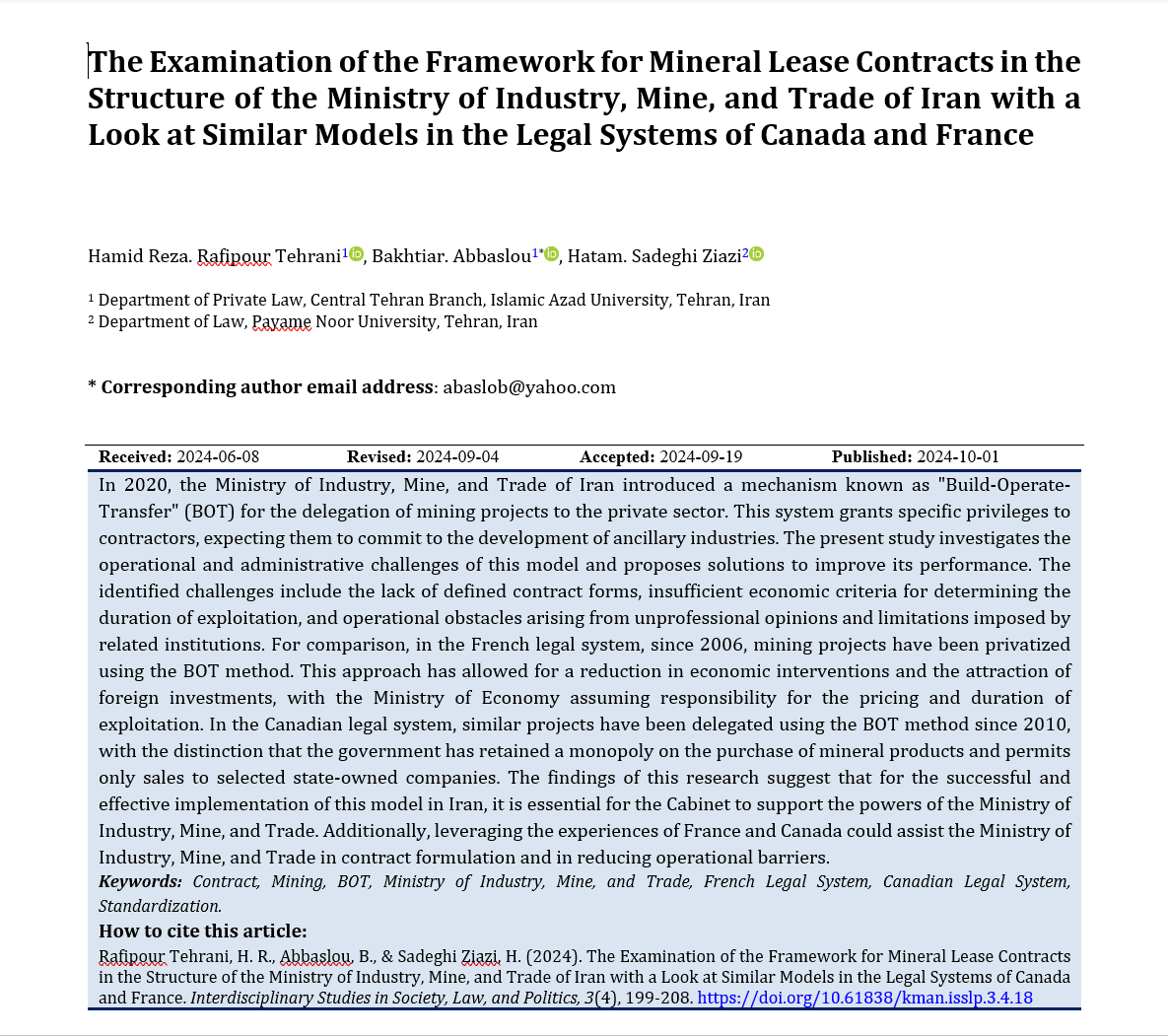The Examination of the Framework for Mineral Lease Contracts in the Structure of the Ministry of Industry, Mine, and Trade of Iran with a Look at Similar Models in the Legal Systems of Canada and France
Keywords:
Contract, Mine, BOT, Ministry of Industry, Mine and Trade, French Legal System, Canadian Legal System, StandardizationAbstract
In 2020, the Ministry of Industry, Mine, and Trade of Iran introduced a mechanism known as "Build-Operate-Transfer" (BOT) for the delegation of mining projects to the private sector. This system grants specific privileges to contractors, expecting them to commit to the development of ancillary industries. The present study investigates the operational and administrative challenges of this model and proposes solutions to improve its performance. The identified challenges include the lack of defined contract forms, insufficient economic criteria for determining the duration of exploitation, and operational obstacles arising from unprofessional opinions and limitations imposed by related institutions. For comparison, in the French legal system, since 2006, mining projects have been privatized using the BOT method. This approach has allowed for a reduction in economic interventions and the attraction of foreign investments, with the Ministry of Economy assuming responsibility for the pricing and duration of exploitation. In the Canadian legal system, similar projects have been delegated using the BOT method since 2010, with the distinction that the government has retained a monopoly on the purchase of mineral products and permits only sales to selected state-owned companies. The findings of this research suggest that for the successful and effective implementation of this model in Iran, it is essential for the Cabinet to support the powers of the Ministry of Industry, Mine, and Trade. Additionally, leveraging the experiences of France and Canada could assist the Ministry of Industry, Mine, and Trade in contract formulation and in reducing operational barriers.
Downloads






